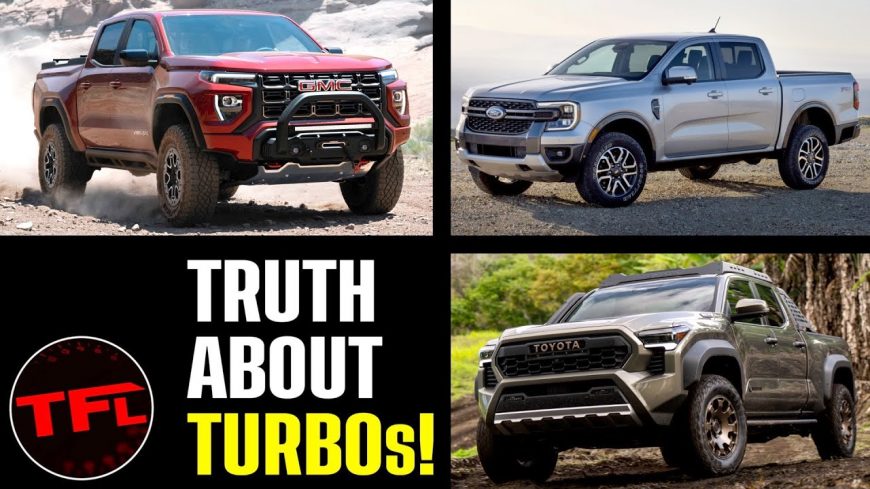Do New Turbo Truck Engines Suck? Interviewing GM, Ford, and Toyota Engineers

In the automotive industry, staying at the forefront of technology is crucial for life. Whether it’s advancements in user interface technology or the innovations happening under the hood, manufacturers must keep up with the competition to retain customers and avoid long term disaster. Playing second fiddle over a long enough timeline could be a formula for disaster.
Lately, the focus in the automotive market has shifted towards the technological developments happening “under the hood.” For decades, combustion-powered vehicles have dominated the scene, and manufacturers have strived to optimize fuel efficiency while maximizing power output. This challenge is particularly evident in the pickup truck segment, where towing capacity is of utmost importance.
However, in recent years, the landscape has changed. It’s no longer just about power and fuel economy. Manufacturers are now also required to concentrate on developing electric-powered technology to fit into their lineup as well. This shift has resulted in a period of transition where various powertrain combinations compete against each other.
Within this transitional phase, manufacturers have been exploring different approaches to gain a competitive edge. One such innovation is turbocharged truck engines, which aim to enhance efficiency by combining a smaller displacement engine with a turbocharger to boost performance.
The question that arises is whether these turbocharged engines are truly effective or merely a passing gimmick that will lose momentum over time. To shed light on this matter, let’s turn to a video featuring the hosts at The Fast Lane Truck. Through their analysis, we can determine if the hype around turbocharged engines is justified or if it’s a trend destined to fade away.
By exploring the video below, we can gain insights into the true value of turbocharged engines and discern whether they are here to stay or just a fleeting trend to be forgotten about in a few years.

